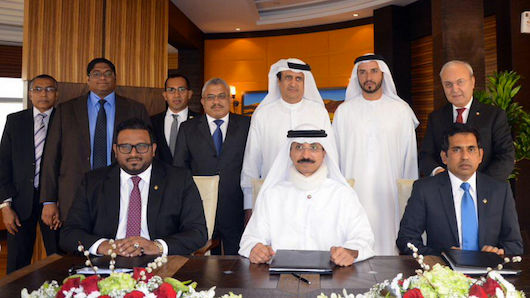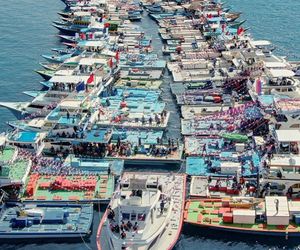No deal with DP World on Thilafushi port project
The government had said that a joint venture agreement would be signed with the global marine terminal operator in April, but Fisheries Minister Dr Shainee revealed this week that the government’s board of investment decided that DP World’s proposal for the port project would not be beneficial for the Maldives.

17 Sep 2015, 9:00 AM
The government was unable to reach an agreement with Dubai Ports (DP) World to develop a port at the Thilafushi industrial island near Malé with a free trade zone, Fisheries Minister Dr Mohamed Shainee revealed yesterday.
Following the signing of a Memorandum of Understanding with the global marine terminal operator on March 19, then-Tourism Minister Ahmed Adeeb said a joint venture agreement will be signed between DP World and the Maldives Ports Limited (MPL) within a month.
However, Shainee told local media yesterday that the government’s board of investment reviewed DP World’s proposal and found that it would not be beneficial to the Maldives.
The investment board formed under the government’s flagship Special Economic Zones (SEZ) Act asked the company to submit a revised proposal, he said, but it did not do so within the period specified in the law.
Become a member
Get full access to our archive and personalise your experience.
Already a member?
Discussion
No comments yet. Be the first to share your thoughts!
No comments yet. Be the first to join the conversation!
Join the Conversation
Sign in to share your thoughts under an alias and take part in the discussion. Independent journalism thrives on open, respectful debate — your voice matters.




